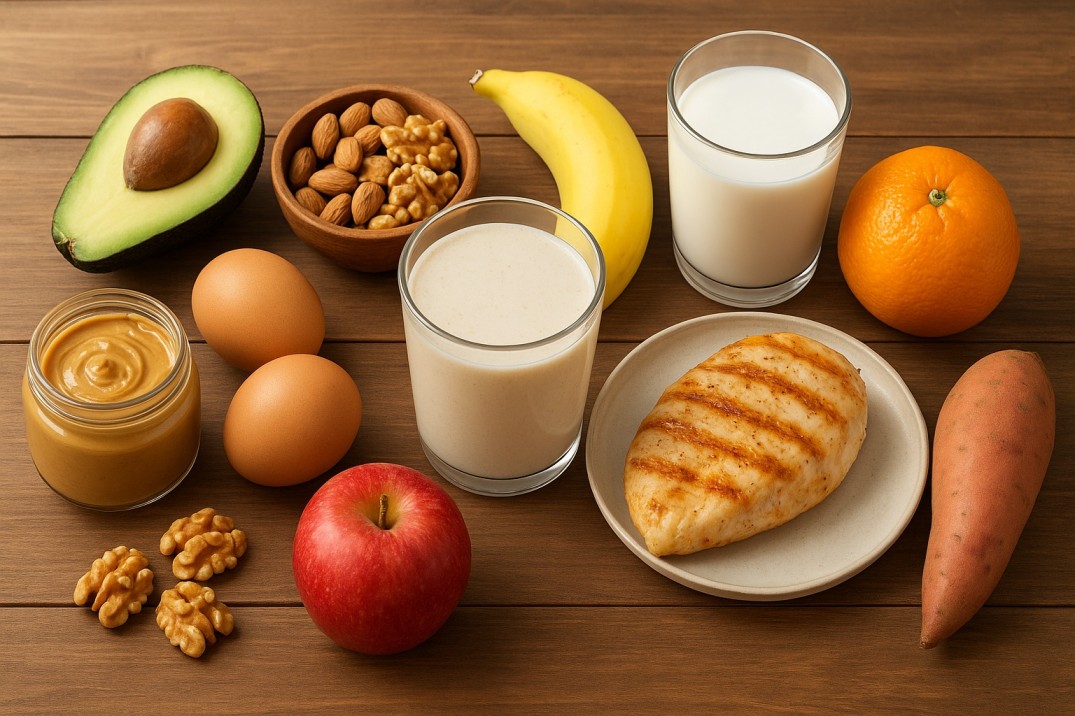Being underweight can be just as concerning as being overweight, affecting your immune system, energy levels, and overall health. If you’re looking to gain weight in a healthy way, this comprehensive guide provides evidence-based strategies to help you reach your goals safely and effectively.
Understanding Underweight: When to Be Concerned
According to the World Health Organization (WHO), you’re considered underweight if your Body Mass Index (BMI) falls below 18.5. However, some people are naturally thin and healthy. Consult with a healthcare provider to determine if weight gain is right for you.
Essential Principles for Healthy Weight Gain
1. Create a Caloric Surplus
To gain weight, you need to consume more calories than you burn. Research published in the American Journal of Clinical Nutrition suggests aiming for an additional 300-500 calories per day above your maintenance needs for gradual, healthy weight gain of 1-2 pounds per week.
2. Focus on Nutrient-Dense, High-Calorie Foods
Rather than filling up on empty calories, choose foods that provide both energy and essential nutrients. The Academy of Nutrition and Dietetics emphasizes the importance of quality over quantity when gaining weight.
Proven Strategies for Weight Gain
Optimize Your Eating Pattern
Eat Frequently Throughout the Day
- Consume 5-6 smaller meals every 2-3 hours instead of three large ones
- This approach helps maximize caloric intake without feeling overly full
- A study in the Journal of Nutrition found that frequent meals can improve nutrient absorption and weight gain
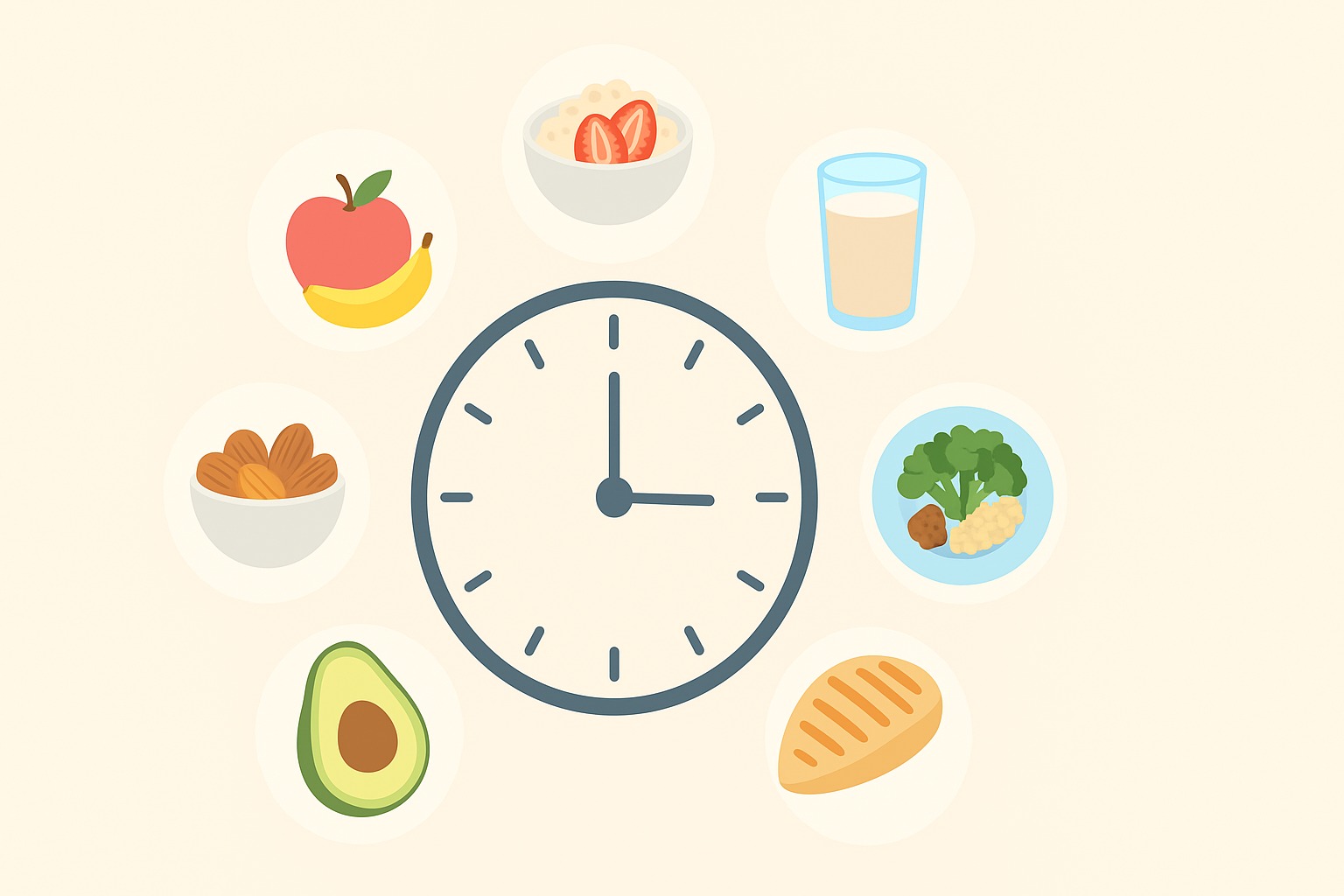
Stay Properly Hydrated
- Drink plenty of water throughout the day, but avoid drinking large amounts before meals
- Water supports digestion and nutrient absorption
- The National Academy of Medicine recommends about 15.5 cups of fluids daily for men and 11.5 cups for women
Power Foods for Weight Gain
Healthy Fats and Nuts Include these calorie-dense options daily:
- Almonds, walnuts, and cashews (160-185 calories per ounce)
- Peanut butter and other nut butters (190 calories per 2 tablespoons)
- Coconut and coconut products
- Raisins and dried fruits
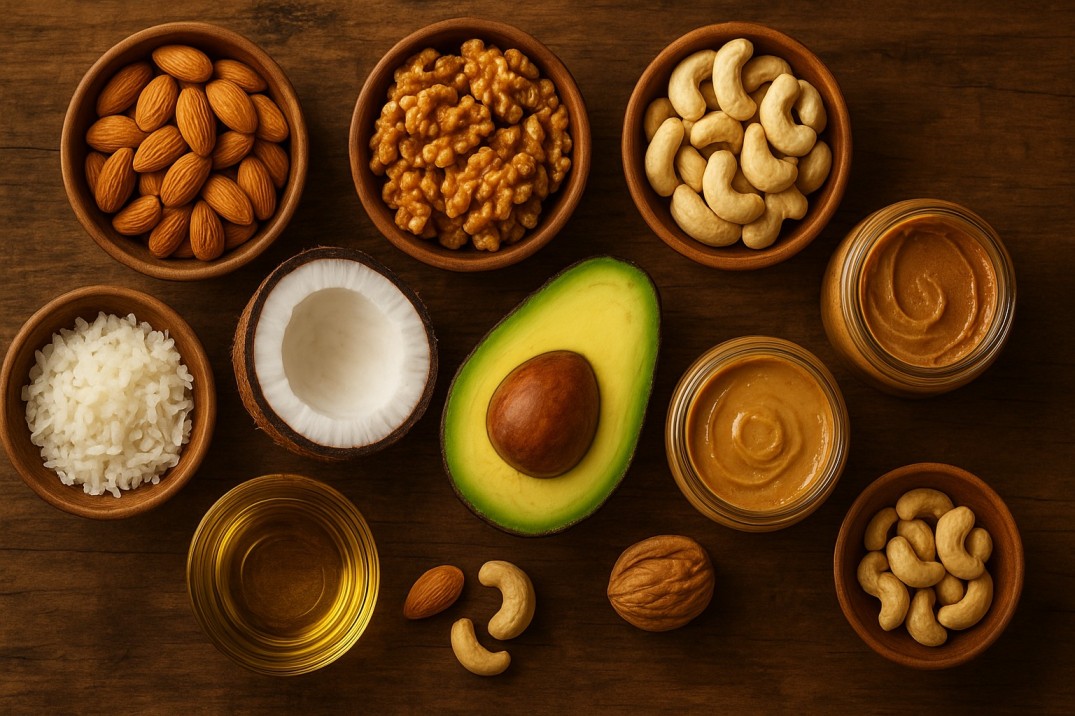
Complex Carbohydrates
- Sweet potatoes and regular potatoes
- Beans and legumes
- Whole grain breads and cereals
- These provide sustained energy and important nutrients
High-Quality Proteins The International Society of Sports Nutrition recommends 1.4-2.0 grams of protein per kilogram of body weight for individuals looking to gain muscle mass:
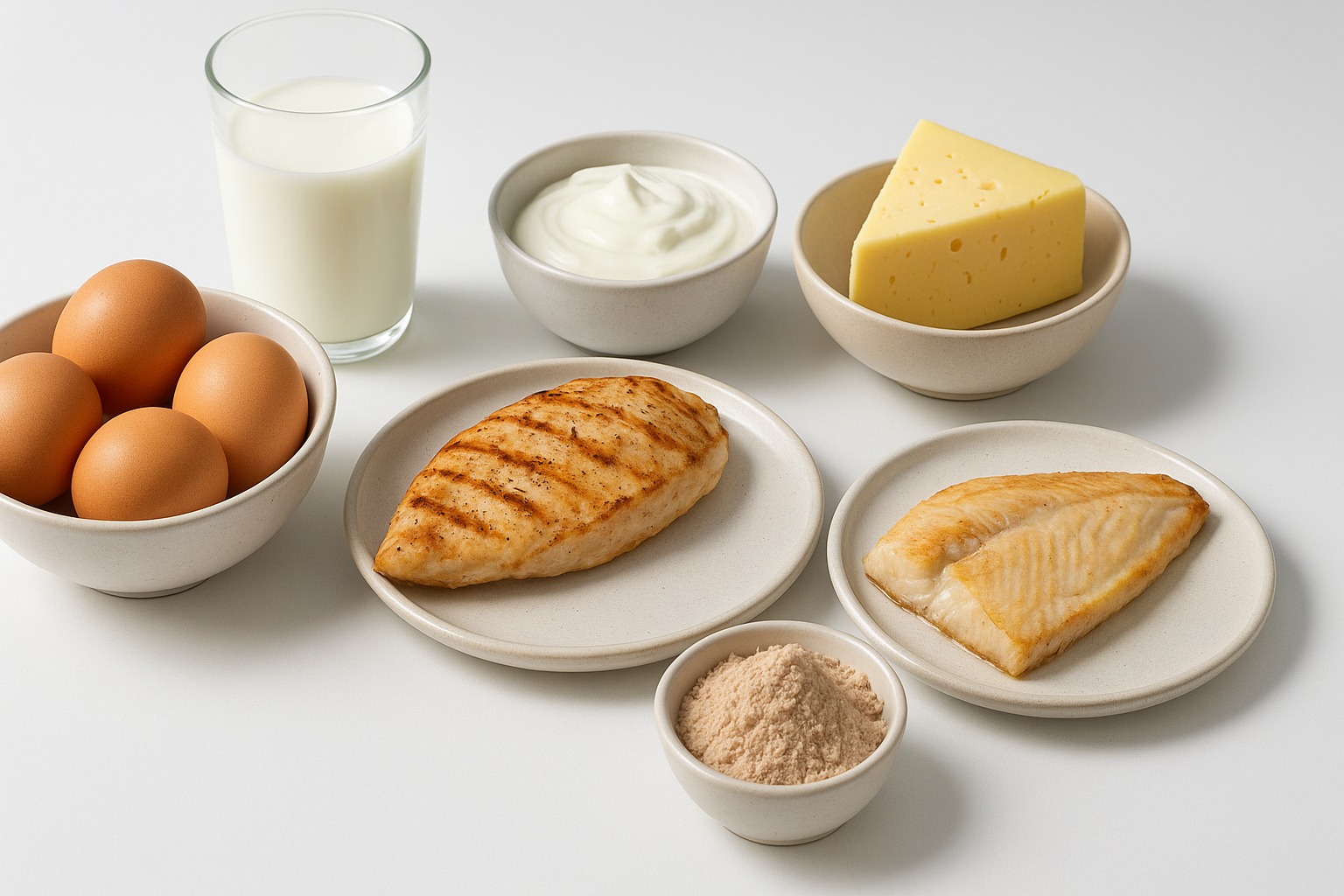
- Eggs (complete protein with all essential amino acids)
- Lean chicken and turkey
- Fish (also provides omega-3 fatty acids)
- Full-fat dairy products
Dairy and Protein-Rich Beverages
Milk and Dairy Products
- Use whole milk instead of low-fat varieties
- Include cheese, yogurt, and other full-fat dairy products
- Research shows that milk proteins can effectively support muscle growth
Nutritious Shakes and Smoothies
- Banana and peanut butter smoothies
- Protein shakes with fruits
- Milk-based beverages between meals
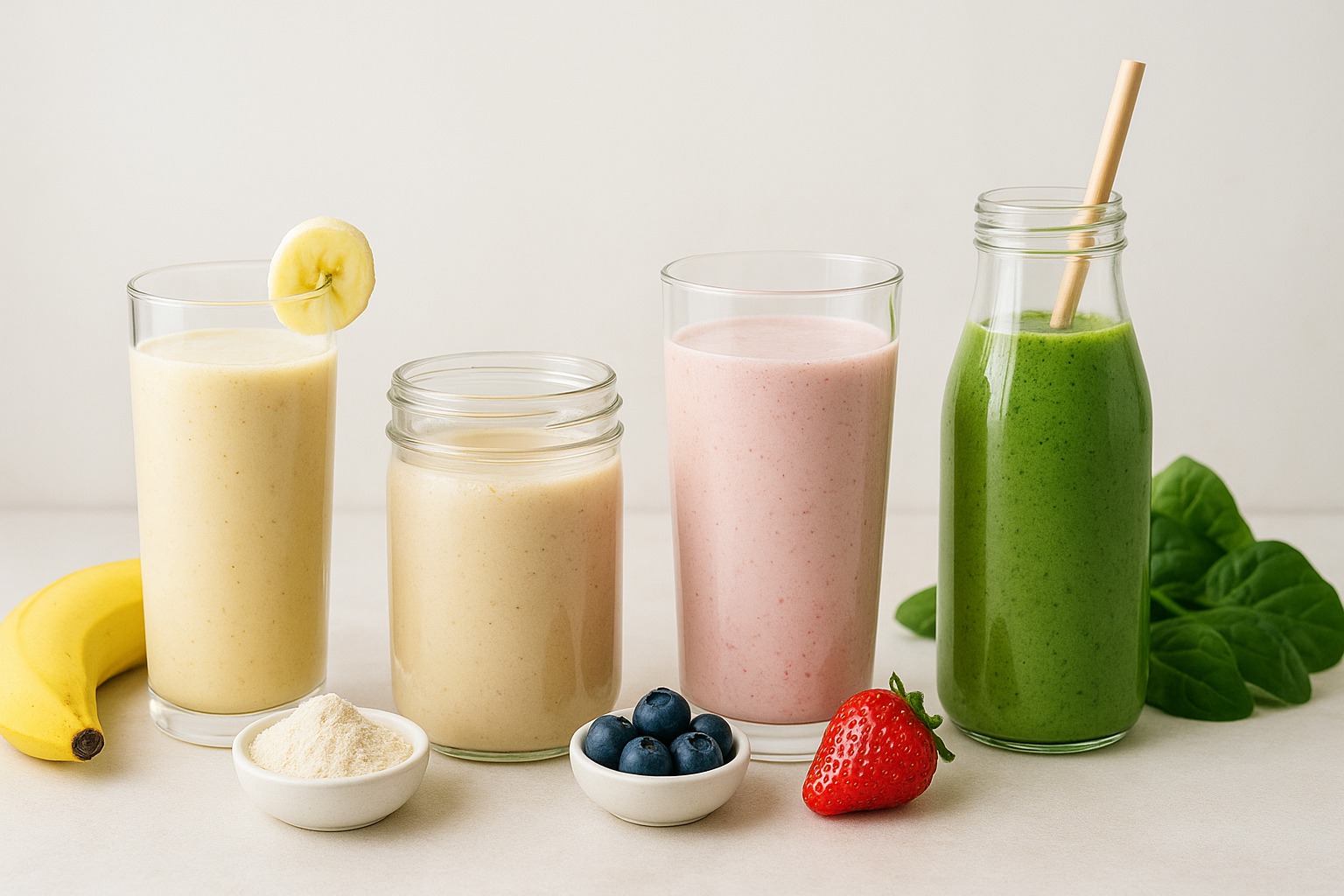
Fruits for Weight Gain
Choose calorie-dense fruits:

- Bananas (105 calories each, rich in potassium)
- Mangoes (135 calories per cup)
- Grapes (104 calories per cup)
- Custard apples (high in calories and vitamins)
- Avocados (320 calories each, healthy fats)
Addressing Nutritional Deficiencies
Combat Anemia Naturally
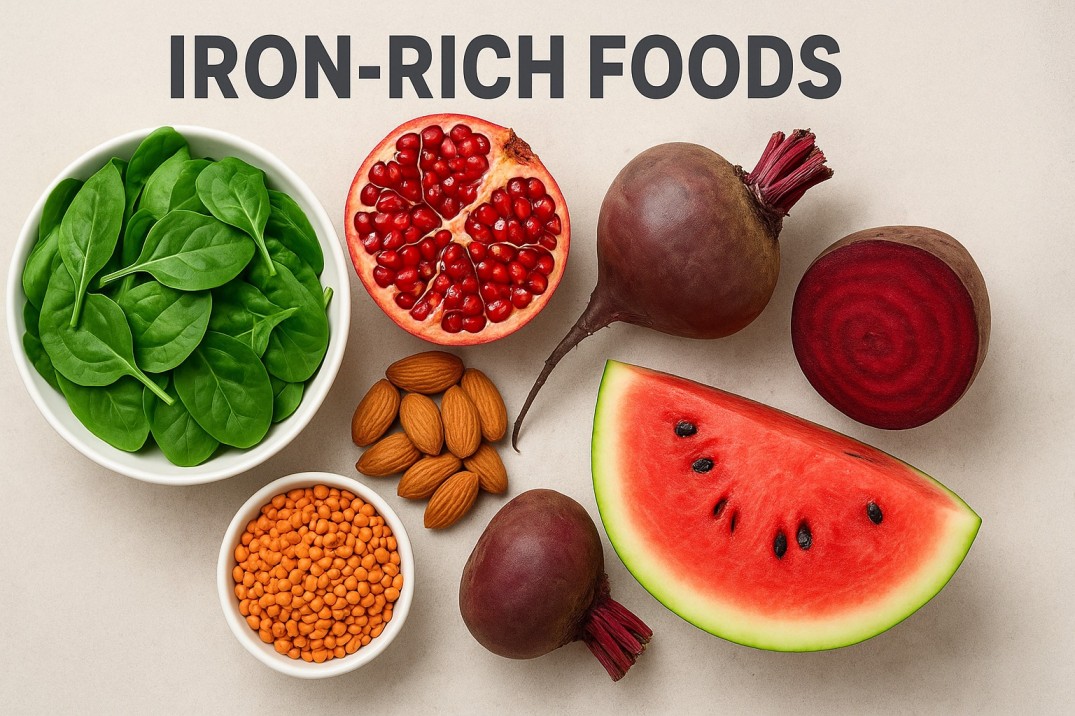
If you’re anemic (common in underweight individuals), include iron-rich foods:
- Spinach and dark leafy greens
- Pomegranate (antioxidants and iron)
- Beetroot (folate and iron)
- Watermelon (vitamin C helps iron absorption)
The American Journal of Hematology emphasizes that combining iron-rich foods with vitamin C sources improves absorption.
The Role of Exercise in Healthy Weight Gain
Strength Training Benefits

Contrary to popular belief, exercise is crucial for healthy weight gain:
- Resistance training builds muscle mass, not just fat
- Yoga improves appetite and digestion
- Regular exercise increases overall stamina and well-being
A study in the Journal of Applied Physiology found that combining resistance training with increased caloric intake leads to better body composition changes than diet alone.
Recommended Exercise Types
- Weight lifting 3-4 times per week
- Bodyweight exercises (push-ups, squats)
- Yoga for flexibility and stress reduction
- Light cardio for cardiovascular health
Important Health Considerations
Regular Medical Monitoring
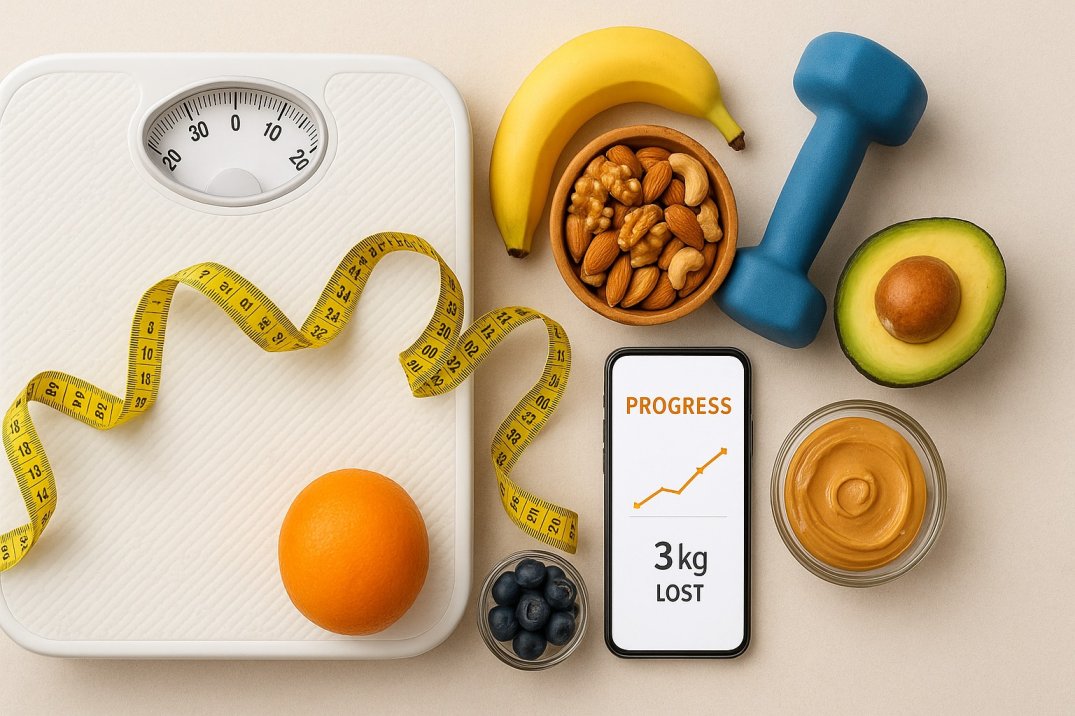
Schedule Regular Check-ups
- Monitor your progress with healthcare professionals
- Rule out underlying conditions causing weight loss
- Adjust your plan based on medical advice
Potential Underlying Causes The Mayo Clinic identifies several conditions that can cause unexplained weight loss:
- Thyroid disorders
- Digestive issues
- Mental health conditions
- Chronic diseases
Sample Daily Meal Plan
Breakfast: Oatmeal with nuts, banana, and whole milk Mid-morning: Smoothie with protein powder, peanut butter, and fruits Lunch: Grilled chicken with sweet potato and vegetables Afternoon snack: Mixed nuts and cheese Dinner: Salmon with rice and avocado Evening: Glass of milk or protein shake
Key Takeaways
Healthy weight gain requires patience and consistency. Focus on nutrient-dense, calorie-rich foods, eat frequently, stay hydrated, and incorporate appropriate exercise. Most importantly, work with healthcare professionals to ensure your weight gain journey is safe and appropriate for your individual needs.
Remember, sustainable weight gain typically occurs at 1-2 pounds per week. Rapid weight gain can lead to health complications and is often not sustainable long-term.
Sources and References
- World Health Organization. “BMI Classification.” WHO Global Database on Body Mass Index.
- American Journal of Clinical Nutrition. “Energy Balance and Weight Management.”
- Academy of Nutrition and Dietetics. “Position Paper on Weight Management.”
- Journal of Nutrition. “Meal Frequency and Nutrient Absorption.”
- National Academy of Medicine. “Dietary Reference Intakes for Water.”
- International Society of Sports Nutrition. “Protein Requirements for Athletes.”
- American Journal of Hematology. “Iron Absorption and Deficiency.”
- Journal of Applied Physiology. “Resistance Training and Weight Gain.”
- Mayo Clinic. “Unexplained Weight Loss: Causes and Treatment.”
